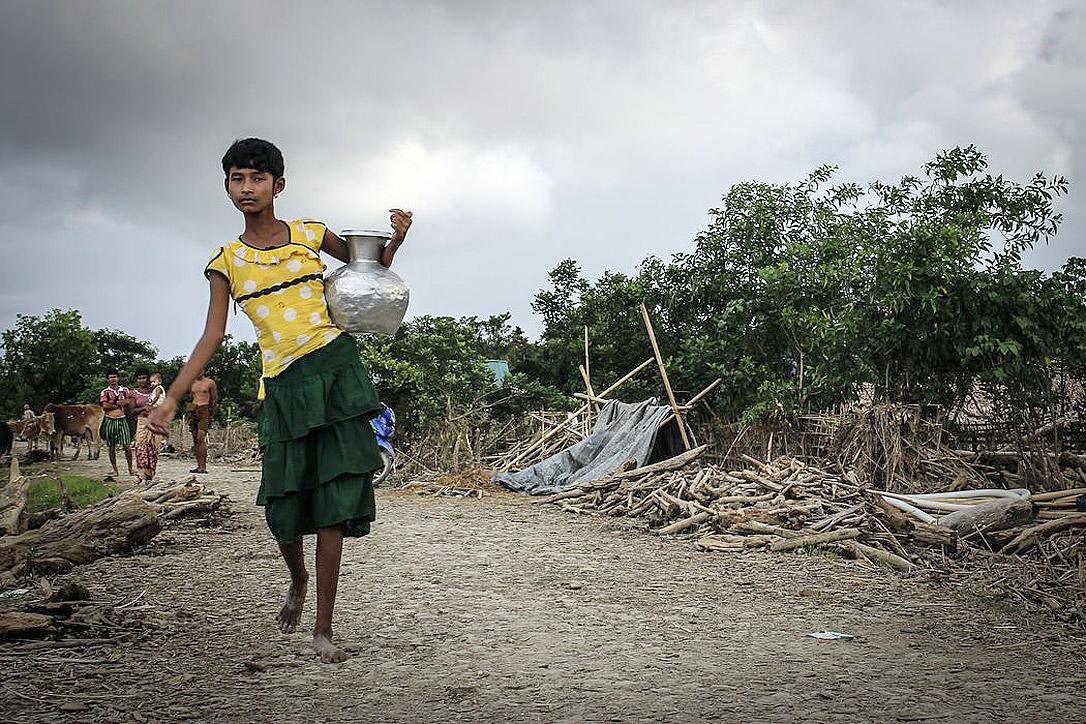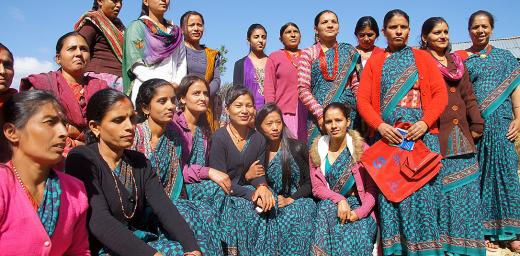Human rights support sought to change lives in Myanmar

A woman walks down a street in Myanmar, where women are particularly disadvantaged. The LWF has presented recommendations to the UN human rights process which will scrutinise human rights in Myanmar.
Delegation from Myanmar presents human rights report report
(LWI) - Safeguarding the human rights of disadvantaged groups in Myanmar and Nepal is a prime concern of The Lutheran World Federation.
The LWF has submitted reports on the human rights situation in both Nepal and Myanmar to the United Nations Human Rights Council for the Universal Periodical Review (UPR) of those two countries.
The UPR reviews the human rights situation on the ground of each member states every four-and-a-half years. Non-governmental organizations are invited to submit firsthand reports, so-called parallel reports.
The reports are based on consultations LWF staff carried out with citizens and civil society organizations with which they work in those countries.
The reports contribute to the UPR, a unique HRC mechanism aimed at improving the human rights situation of each of the 193 UN member states.
In early October, the LWF delegation from Myanmar presented their findings to representatives of some governments in Europe and other Permanent Missions to the UN in Geneva. Lutheran World Information spoke with delegate San Thein Maung about the UPR process.
What are the three main human rights issues in your country?
Our main human rights issues are firstly the right to land. Around 70 percent of the population in Myanmar live in rural areas. Most are farmers and rely on access and use of their land. But most lack official or legal registration of their land.
The reasons for this are mostly traditional customary laws and practices, whereby land is inherited, exchanged or sold informally. This practice makes them vulnerable to land grabbing. The situation is especially difficult for them in the current context where the country is opening up to foreign investment: large companies come to exploit the land and natural resources of the country, and the government sells the land of small-scale farmers. Also, the military has been occupying a lot of land for military bases and other purposes, instead of allocating the land to local communities.
A second concern is the rights of women, who have no equal access to land, property, education, employment or decision-making positions in the government. Only 4.4 percent of the members of parliament in Myanmar are female.
The country lacks legal instruments and awareness of government authorities, administration and police, as well as local communities on domestic and gender-based violence. Recent legislation poses grave concerns for civil society organizations, including the new bills called “Race and Religion Bills,” which would enable the government to control interfaith marriages. Buddhist women who wish to marry a man of a different faith face particularly severe problems, as do women who convert to another religion. or have extra-marital relationships.
Our report also addresses the right to nationality. According to the United Nations Children’s Fund UNICEF, 30 percent of under five-years do not have a birth certificate. Large portions of the Myanmar population, especially from the so-called ethnic minorities do not have legal documents that prove their citizenship and nationality. Without an official identity, they are prevented from accessing fundamental rights, such as the right to vote, right to higher education, right to property.
What are your hopes for the upcoming elections, in terms of human rights?
Our hope is that the elections will be conducted in a fair and just manner, and that everybody over 18 will be able to vote, no matter their gender, ethnicity, religion or geographical location. We also hope that all parties will accept the results of the elections, and that transition of power could be conducted in a peaceful manner, respecting the wish of the people of Myanmar. We believe that to achieve this, the international community should actively monitor elections. Whoever wins the election and comes to power should then guarantee fulfilment of equal rights for all the people of Myanmar.
What is your schedule in Geneva?
The purpose of our visit is to present the key findings and recommendations on human rights issues in Myanmar to representatives of foreign missions in Geneva. We will advocate to foreign governments and the international community to encourage the Myanmar Government to respect, protect and fulfill the rights of the people of Myanmar, so they can live in better conditions.
What do you hope to achieve from this visit?
We hope members of the UN Human Rights Council and governments will give concrete recommendations to the Myanmar government and support to change in the lives of people in Myanmar based on the results of the UPR.




